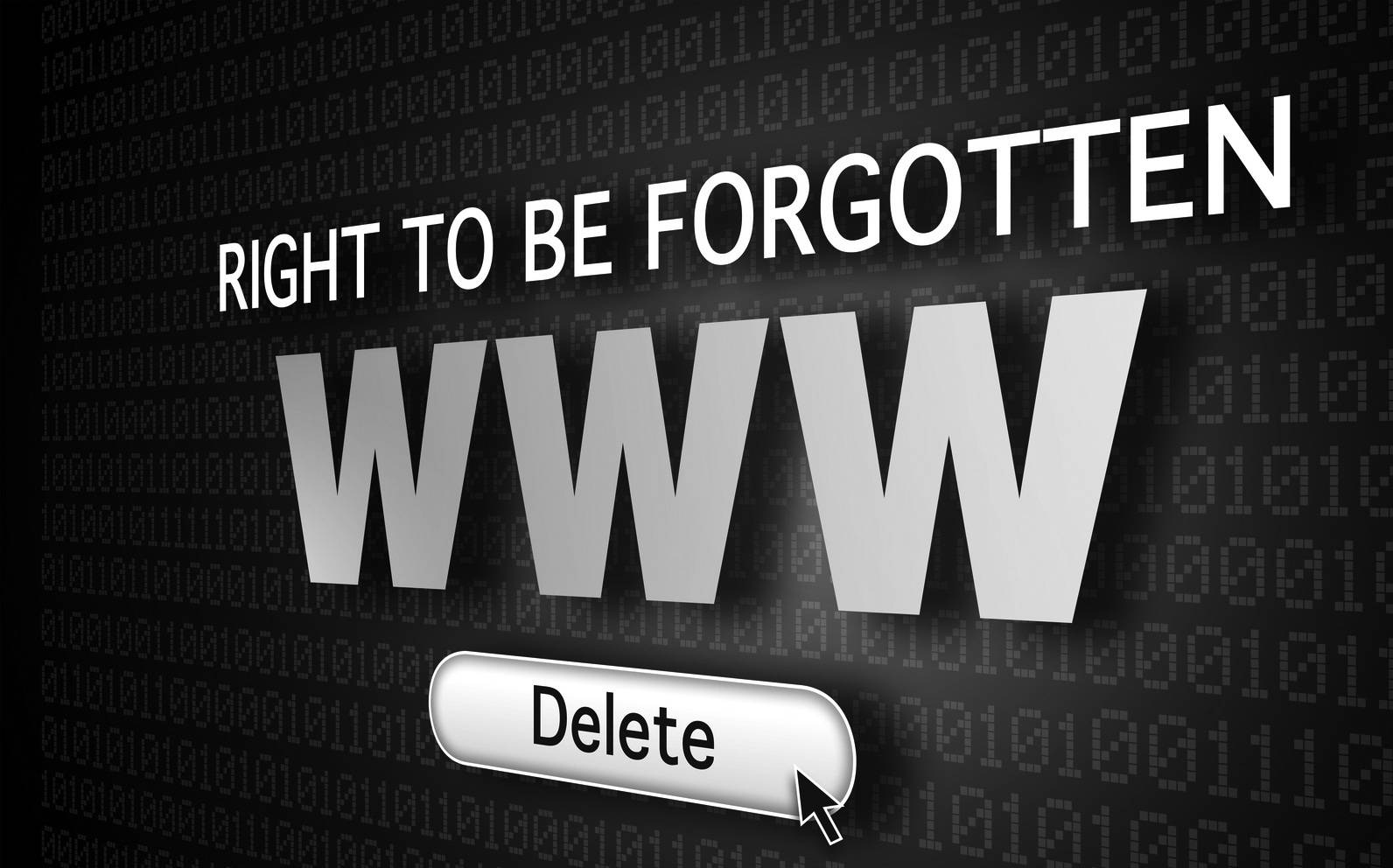The right to be forgotten is a section under Data Protection Bill draft. And just like Data Protection Bill, right to be forgotten is being examined from all the angles before it gets transformed into the law in India.
Definition:
The right to be forgotten gives the citizens of a state to get their personal information and irrelevant data to be deleted from the Google and other online platforms. It is the section 27 of Data Protection Bill, under which an individual have the right to restrict or prevent the disclosure of data related to him/her under certain circumstances. These circumstances include an individual’s right to be forgotten by certain accounts and documents if the data is no longer relevant or necessary; the consent to use data has been withdrawn; or it is being used against the law in any way. This gives individuals ample right to make their information inaccessible if they feel access to this information cannot be safe for them.

History:
The right to be forgotten came into conception under French jurisprudence in 20th century. It was French “right to oblivion” or “droit à l’oubli” under which the offenders who had served their sentence were allowed to object “to the publication of information regarding their crime and conviction in order to ease their process of social integration”. (Source: livelaw.in)
Following the French example, it was the European Union which introduced this right in the European Union Data Protection Directive in 1995.
Since then the right to be forgotten is in practice in many states, and is likely to be introduced in India as well.
European Court of Justice (ECJ), in 2014, asked Google to delete irrelevant, unnecessary, and no longer relevant data from its search engines on an individual’s request.
In 2017, the Karnataka High Court also accepted and applied the right to be forgotten in one of its judgments. The court ensured that a woman’s name in a criminal order passed by the same court, is not shown in any internet search in a public domain. According to the high court, ““This is in line with the trend in Western countries of ‘right to be forgotten’ in sensitive cases involving women in general and highly sensitive cases involving rape or affecting the modesty and reputation of the person concerned.” (Source: livelaw.in)

Challenges:
In countries like India such rights may be seen as a radical approach to freedom and consequently, may face certain challenges. Just to state a few, Justice BN Srikrishna Committee is still struggling with Data Protection Bill, and especially with the section of right to be forgotten, because it need to be balanced with other rights like right to freedom of speech and right to information. As per a report by Times of India,
“The panel recommended that the right to object to processing right to object to direct marketing, right to object to decisions based on solely automated processing, and the and the right to restrict processing need not be provided in the law.”
You can read here the five point criteria, which is to be adopted for right to be forgotten.


